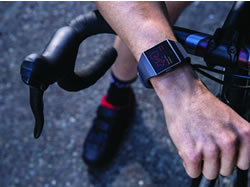CANADA
 A Canadian Federal Agency is researching whether Public Servants should be offered electronic fitness-tracking devices to help reduce their health insurance premiums.
A Canadian Federal Agency is researching whether Public Servants should be offered electronic fitness-tracking devices to help reduce their health insurance premiums.
The wearable fitness trackers, such as smart-watches, also could be used to reward fitness-conscious employees through loyalty points programs, similar to a travel points program.
The exploratory research has been carried out in the Privy Council Office, the central organ of the Federal Government, by the little-known Impact and Innovation Unit, which experiments with new ways to “revitalise the workforce”.
A memo from October obtained by journalists under the Access to Information Act sets out the pros and cons of various ways “through which the Public Service could be encouraged to engage in healthy habits using wearable devices”.
Such tracking devices have evolved rapidly in recent years, from the debut of the Fitbit a decade ago to today’s armbands and sensor-equipped shoes.
Activity trackers can monitor and record statistics on heart rates and sleep, as well as walking and running distances.
The memo states that interactive insurance policies give consumers the opportunity to receive discounts on premiums for sharing health-related information through wearable tracking devices.
It suggests the technology could be used to cut costs in the 600,000-member Public Service Health Care Plan, administered by Sun Life Financial.
“Typically, tracking devices collect consumers’ fitness metrics (e.g., daily steps taken or gym visits) and are linked to the insurance provider’s mobile application,” the memo said.
“Fitness metrics are stored within the app, and eventually become applied to insurance premium savings.”
While Sun Life’s Public Service plan does not currently offer premium reductions for the use of fitness trackers, the memo says adding a fitness-tracking element to the health plan could be a way “to introduce interactive policies to more Canadians”.
A spokesperson for the Privy Council Office said the Unit often undertook exploratory research to examine a wide range of topics.
“In the case of incentivised fitness tracking, no further work was pursued beyond the initial research phase,” the spokesperson said.
Ottawa, 15 March 2019









